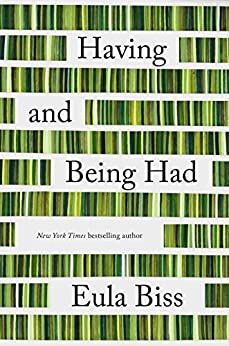More on this book
Community
Kindle Notes & Highlights
Consume, he notes, is from the Latin consumere, meaning “to seize or take over completely.” A person might consume food or be consumed by rage. In its earliest usage, consumption always implied destruction.
Nearly all people in nearly all nations, for nearly all of human history, he observes, have been poor. Widespread poverty is not an anomaly. But widespread affluence is. And if we meet this new affluence with old ideas forged in poverty, we will misunderstand ourselves.
“Judging wealthy people on the basis of their individual behaviors—do they work hard enough, do they consume reasonably enough, do they give back enough—distracts us from other kinds of questions about the morality of vastly unequal distributions of wealth,” she writes. We shouldn’t ask our rich to be good, in other words, we should ask our economic system to be better. THE
In Magie’s original version of the Landlord’s Game, players earned money by completing a circuit around the board and passing the square labeled “Labor upon Mother Earth Produces Wages,” which is now simply “Go.” Magie patented her game twice, but this didn’t prevent a man, Charles Darrow, from packaging the game under the name Monopoly and making himself a millionaire.
“Markets are constructed by people,” Appelbaum argues, “for purposes chosen by people—and people can change the rules.” We don’t have to privilege accumulation over distribution. But that is the rule that governs our everyday lives—our work and our play.
Their end is accumulation—collecting cards for a game they don’t know how to play. THE
And practice is all I want out of art.
I could also have said that it’s a critique, an embodied critique of the middle-class cult of personal safety. It’s a rejection of the belief that every vulnerability should be protected, and that the central project of our lives is to undo our own precarity. It’s a refusal of a way of life devoted to insurance.
Capitalism, she writes, was a counterrevolution. Among the rebels who resisted that counterrevolution were the Diggers, who called themselves the True Levellers. They imagined a new economy, in which people would work with each other, rather than for each other. They were not just ahead of their time, Hill notes, they were ahead of ours. They fled to America, the radicals of that time, where their ideas have been forgotten.
“O sacred solitary empty mornings, tranquil meditations—fruit of book-case and clock-tick, of note-book and arm-chair; golden and rewarding silence, influence of sun-dappled plane-trees, far-off noises of birds and horses, possession beyond price of a few cubic feet of air and some hours of leisure.”


